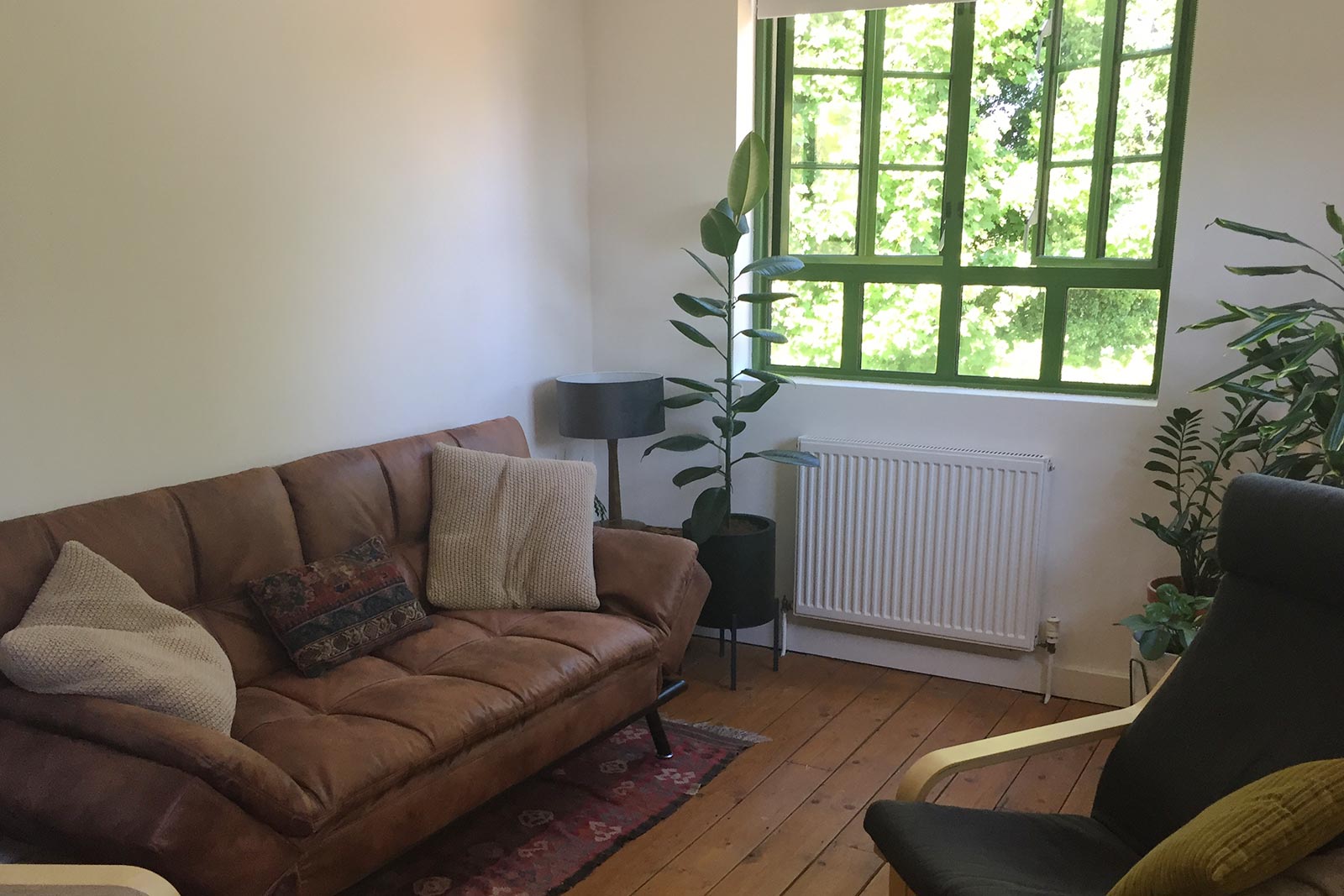Talking Cures
Talking cures start with listening. This simple fact is at the heart of a psychoanalytic approach. Therapy offers a private space in which you will be listened to, and helped to understand yourself in new ways.
People come to therapy for all sorts of reasons, not all of which can be articulated at the start. It might be that a distressing life event prompts you to seek help, such as a relationship breakdown, an illness or bereavement, or something that has forced you to reflect on your sense of who you are. It might be that you’ve struggled with your mental health for some time and you want to explore the possibility of feeling differently. It might be that you’re repeating destructive patterns in relationships that you want to understand and change, or that you’re looking for additional, confidential support to help you through a particularly demanding period. Whatever the reasons, your reasons are your own; as is your therapy.
Psychoanalytic therapy works in ways that are intimately attuned to the concerns and material of the particular individual. There is no one-size fits-all answer, no template to follow. The pace and depth of the work is set by you. What’s especially important is finding a therapist with whom you can establish a relationship of trust in order that they can support you and challenge you effectively.
Worthwhile therapy is not a quick fix. Whilst some people may choose to come for a few months to focus on a specific concern or a challenging life-project, many choose an open-ended approach. Because people often find that talking to a therapist allows them to discover things about themselves and begin to experience life differently, pre-determined timeframes are not always helpful.
People come to therapy for all sorts of reasons, not all of which can be articulated at the start. It might be that a distressing life event prompts you to seek help, such as a relationship breakdown, an illness or bereavement, or something that has forced you to reflect on your sense of who you are. It might be that you’ve struggled with your mental health for some time and you want to explore the possibility of feeling differently. It might be that you’re repeating destructive patterns in relationships that you want to understand and change, or that you’re looking for additional, confidential support to help you through a particularly demanding period. Whatever the reasons, your reasons are your own; as is your therapy.
Psychoanalytic therapy works in ways that are intimately attuned to the concerns and material of the particular individual. There is no one-size fits-all answer, no template to follow. The pace and depth of the work is set by you. What’s especially important is finding a therapist with whom you can establish a relationship of trust in order that they can support you and challenge you effectively.
Worthwhile therapy is not a quick fix. Whilst some people may choose to come for a few months to focus on a specific concern or a challenging life-project, many choose an open-ended approach. Because people often find that talking to a therapist allows them to discover things about themselves and begin to experience life differently, pre-determined timeframes are not always helpful.
My Approach
My approach is informed by a range of psychoanalytic orientations, as well as by philosophical and phenomenological traditions. I practice a mode of psychoanalytic psychotherapy which endeavors to reflect some of the diversity and creativity of contemporary clinical thinking, whilst remaining faithful to the fundamental premise that we are not always conscious of the forces and desires that drive us. I also bring to the work a psychosocial orientation, which includes a commitment to recognizing the ways the social world shapes and can damage the psyche. In order to acknowledge how particular identities are marginalized and stigmatized -including through race, class, disability, gender, sexuality- I recognize and make space to actively address the social and political context for an individual’s route into therapy.
I have a special interest in working in areas connected to my research expertise, including the politics of sex and gender, narcissism, shame and maternal identities. I also have considerable experience and interest working with writers, artists and academics seeking to support their creative and intellectual projects. You can choose to undertake psychoanalytic therapy for the opportunity it offers to deepen your self-understanding and explore your orientation to the world. It can be a life-changing process; one that can exhilarate, as well as alleviate suffering.
I have a special interest in working in areas connected to my research expertise, including the politics of sex and gender, narcissism, shame and maternal identities. I also have considerable experience and interest working with writers, artists and academics seeking to support their creative and intellectual projects. You can choose to undertake psychoanalytic therapy for the opportunity it offers to deepen your self-understanding and explore your orientation to the world. It can be a life-changing process; one that can exhilarate, as well as alleviate suffering.
I have experience working with a wide range of concerns, including:
My Training and Qualifications

Important Practicalities
I am located approximately 5-10 minutes walk from Highgate Tube station (Northern Line), and well situated for various bus routes. Regrettably, my consulting room is not accessible by wheelchair. I am practiced at working remotely (e.g. over the internet or on the telephone), and am happy to work this way depending on your particular situation. Ongoing fees are discussed and agreed upon on an individual basis. Sessions last for fifty minutes, and I generally work with people at a twice-weekly frequency. Do feel free to be in touch in confidence to discuss the possibility of a consultation with me where we could begin to explore your concerns and options for therapy. If, after our first meeting, we decide against working together, I am well placed to recommend alternative therapists to you.
